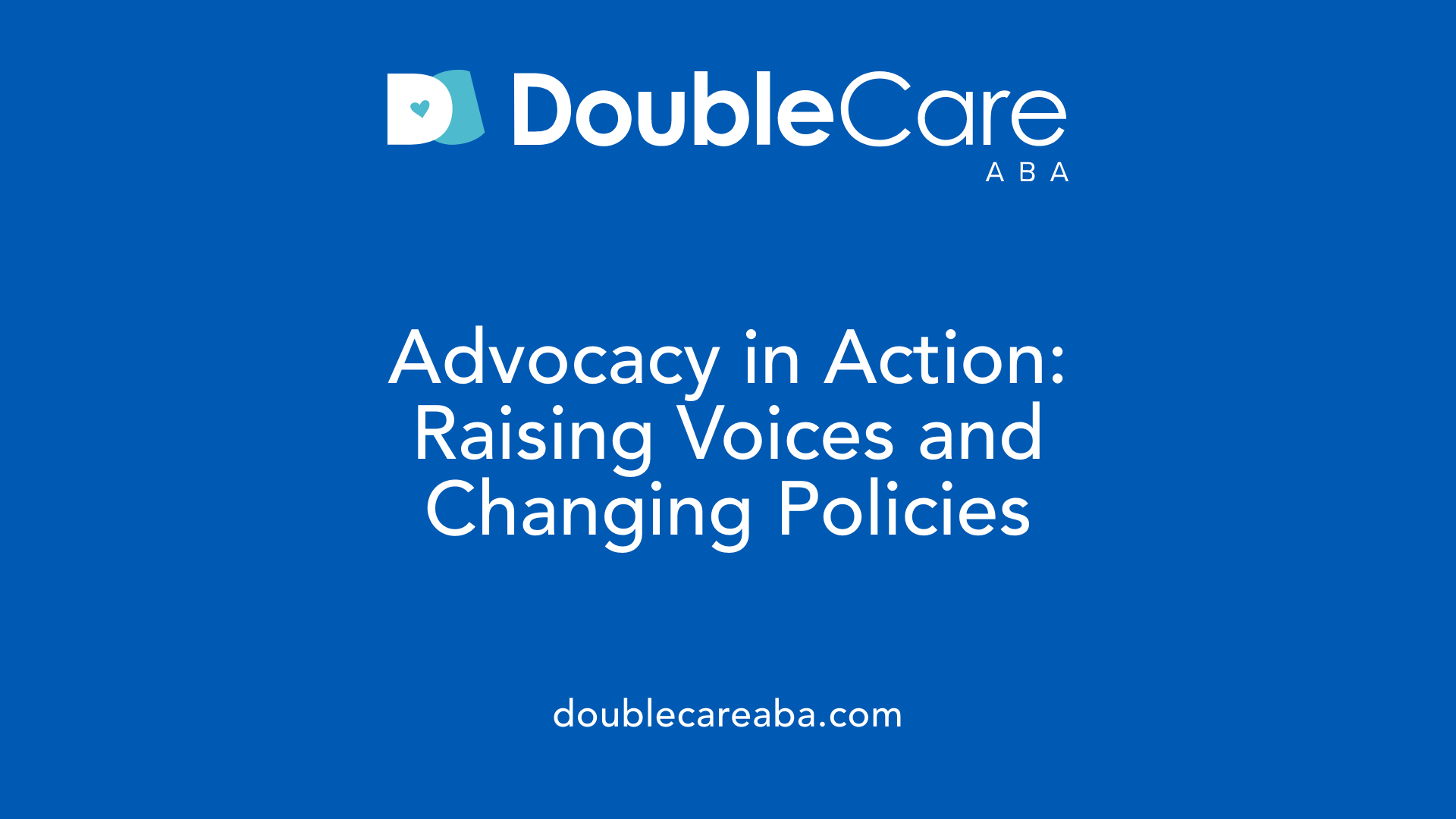Understanding Autism in the European Context
Autism spectrum disorder (ASD) presents unique challenges and opportunities within Europe's diverse social, healthcare, and educational landscapes. As diagnosis rates increase, so does the urgency for effective support systems, inclusive policies, and societal awareness. This article explores the multifaceted efforts across Europe to improve the lives of autistic individuals, driven by organizations like Autism-Europe, and examines the epidemiological trends, regional disparities, and ongoing advocacy for autism rights.
The Mission and Work of Autism-Europe in Promoting Autism Rights

What is the mission of Autism-Europe and how does it support the autism community across Europe?
Autism-Europe aims to uphold and advance the rights of autistic individuals and improve their quality of life throughout Europe. Since its founding in 1983, the organization has dedicated itself to promoting inclusion, understanding, and wellbeing for autistic people and their families. Its foremost objective is to ensure that the rights specified in international frameworks like the United Nations’ Convention on the Rights of Persons with Disabilities (UN CRPD) are recognized and respected across all member countries.
To achieve this, Autism-Europe advocates extensively with European decision-makers. The organization campaigns for policies that guarantee access to vital services such as education, healthcare, employment, and community support for autistic individuals. Emphasizing a rights-based and evidence-informed approach, Autism-Europe works tirelessly to influence legislative and policy changes that benefit the autism community.
The organization’s role in advocacy, awareness, and policy influence
Autism-Europe plays a crucial role in raising awareness about autism within European society. It organizes campaigns and events aimed at fostering greater understanding and reducing stigma. Through its efforts, the organization strives to combat discrimination and promote societal inclusion.
A significant part of Autism-Europe’s advocacy work involves engaging with policymakers at the European level. It drafts declarations such as pledges for European Parliament candidates, urging them to prioritize the rights and needs of autistic individuals. The organization also influences legislation and supports research projects aimed at improving support systems.
In addition, Autism-Europe collaborates with its nearly 90 member organizations across 38 European countries. This network helps to amplify efforts, share best practices, and coordinate initiatives that aim to improve access to services and societal acceptance.
Upcoming events and initiatives
One notable upcoming initiative is the 14th Congress of Autism-Europe, scheduled to take place in Dublin from September 11-13, 2025. This congress provides a vital platform for professionals, families, and autistic individuals to discuss recent advances, share experiences, and develop strategies for future progress.
Furthermore, Autism-Europe actively participates in various European projects dedicated to improving the quality of life for autistic people, including research, policy development, and awareness campaigns. Its ongoing efforts are aimed at removing barriers to services, addressing disparities across different countries, and ensuring that policies reflect the diverse needs of the autism community.
Overall, Autism-Europe’s work centers on not only championing rights but also creating a more inclusive and supportive environment for autistic people across the continent.
European Campaigns and Advocacy for Autism Rights

What are the main advocacy efforts and campaigns undertaken by Autism-Europe to promote autism rights?
Autism-Europe plays a pivotal role in advocating for the rights and well-being of autistic people across Europe. One of their prominent initiatives is the 'Not Invisible' campaign, launched in April 2024. This campaign aims to humanize and amplify the voices of autistic individuals by sharing personal stories that highlight both their challenges and successes. Through this effort, Autism-Europe seeks to raise awareness, foster inclusivity, and push for systemic changes required in sectors like education, employment, healthcare, and social participation.
Beyond public awareness, Autism-Europe actively engages with policymakers at the European level. They work closely with members of the European Parliament and other EU institutions to influence legislation and develop policies that remove barriers faced by autistic individuals. This includes drafting pledges and recommendations for European Parliament candidates, aligning their advocacy with the principles of the United Nations’ Convention on the Rights of Persons with Disabilities (UN CRPD).
The organization also hosts and participates in various events to strengthen community involvement. Their annual congresses, such as the upcoming 14th Congress scheduled in Dublin from September 11-13, 2025, serve as platforms for dialogue between professionals, autistic individuals, families, and policymakers. These gatherings promote the exchange of ideas and best practices to improve societal understanding and support.
In addition to large-scale campaigns and events, Autism-Europe employs diverse outreach methods, including social media campaigns, testimonial sharing, and photography exhibitions. These activities help to humanize the autism experience and give visibility to voices that are often marginalized.
Collaboration with member organizations across 38 European countries enhances the reach and impact of their initiatives. By uniting diverse groups within the autism community, Autism-Europe aims to create a unified front advocating for rights, better services, and increased societal acceptance.
| Campaign Focus | Main Activities | Impact Area |
|---|---|---|
| 'Not Invisible' Campaign | Sharing personal stories, raising awareness | Societal understanding, public awareness |
| Policy Advocacy | Drafting pledges, engaging with policymakers | Legislation and policy development |
| Events and Conferences | Organizing Congresses and symposiums | Community building, knowledge sharing |
| Social Media and Outreach | Testimonials, exhibitions, online campaigns | Visibility, societal acceptance |
| Member Collaboration | Partner organizations across Europe | Unified advocacy efforts, regional impact |
Through these persistent and multi-faceted efforts, Autism-Europe continues to demand stronger rights and better societal integration for autistic individuals throughout Europe.
Research, Projects, and Initiatives Promoting Awareness and Support
 Europe has established a variety of research projects and initiatives aimed at raising awareness of autism and enhancing support services for autistic individuals. Major collaborations such as EU-AIMS (European Autism Interventions—Efficacy of Supported Strategies) and AIMS-2-TRIALS focus on understanding the biological underpinnings of autism and improving diagnostic methods. These projects span several European countries, fostering cross-national research that addresses the complexities of autism spectrum disorder (ASD).
Europe has established a variety of research projects and initiatives aimed at raising awareness of autism and enhancing support services for autistic individuals. Major collaborations such as EU-AIMS (European Autism Interventions—Efficacy of Supported Strategies) and AIMS-2-TRIALS focus on understanding the biological underpinnings of autism and improving diagnostic methods. These projects span several European countries, fostering cross-national research that addresses the complexities of autism spectrum disorder (ASD).
In addition to research efforts, numerous support-focused initiatives have been launched to improve real-world outcomes. Projects like JobAut aim to increase employment opportunities for autistic people by developing tailored support programs and workplace awareness campaigns. DivEE (Diversity, Inclusion, Education) works to promote inclusive educational practices, ensuring autistic students gain access to appropriate learning environments.
Other programs such as Autism-Friendly Spaces create physical environments that are welcoming and accessible, reducing sensory overload and encouraging community integration. Digital inclusion and education are addressed through initiatives like EMPOWER, ASD-IncluDi, and IDEAL, which develop innovative tools and resources for inclusive learning and digital engagement.
These projects also prioritize improving diagnostic accuracy and timely intervention. Efforts are made to reduce waiting times for assessment and support services, with policies designed to ensure services are more accessible, affordable, and suited to individual needs.
The concerted European approach to autism research and support demonstrates a commitment to enhancing quality of life for autistic individuals. By fostering collaboration among researchers, policymakers, and community organizations, these initiatives aim to create a more inclusive society where every autistic person can thrive.
| Initiative Name | Focus Area | Description | Countries Involved |
|---|---|---|---|
| EU-AIMS | Research | Understanding autism biology, diagnostics, and treatments | Multiple European countries |
| AIMS-2-TRIALS | Clinical trials | Exploring treatment strategies across Europe | Multiple European countries |
| JobAut | Employment | Creating jobs and workplace support | Several EU nations |
| DivEE | Education | Promoting inclusive education practices | Various countries |
| Autism-Friendly Spaces | Environment | Designing sensory-friendly public spaces | Several regions |
| EMPOWER | Education | Developing inclusive learning tools | European-wide |
| ASD-IncluDi | Digital Inclusion | Digital tools for autistic learning and engagement | Various countries |
| IDEAL | Education | Strategies for inclusive education environments | European regions |
These collaborative efforts span research, education, employment, and community support, demonstrating Europe's comprehensive approach to autism awareness and support.
Cultural Attitudes, Perception, and Diagnosis Trends Across Europe
How do perceptions, diagnosis, and cultural attitudes towards autism vary across different European countries?
Across Europe, societal perceptions and diagnostic practices related to autism show significant differences influenced by cultural, social, and healthcare system factors.
In countries like Scandinavia and the UK, autism awareness is relatively high thanks to comprehensive public policies, inclusive education, and strong healthcare infrastructure. These regions tend to have broader screening programs, which lead to higher reported diagnosis rates.
Conversely, Eastern and Southern European nations often face underdiagnosis due to limited resources and less extensive awareness campaigns. In some areas, autism may still be stigmatized, with misconceptions leading to delayed diagnoses or reluctance to seek support.
Cultural attitudes significantly shape community responses. In certain cultures, autistic children may be viewed as special or be regarded as a gift, encouraging early intervention and support. In others, disabilities are perceived more negatively, which can hinder acceptance and appropriate care.
Migration and diverse cultural backgrounds also influence perceptions, especially among immigrant communities. Language barriers, cultural misunderstandings, and lack of tailored information can prevent access to necessary services.
Organizations like Autism-Europe work actively across the continent to promote awareness and advocate for better understanding. They aim to influence policies that foster positive attitudes towards autism, ensuring support systems are inclusive and accessible.
| Country/Region | Diagnosis Rates | Cultural Attitudes | Challenges | Resources & Awareness |
|---|---|---|---|---|
| Scandinavia & UK | Higher due to awareness | Generally positive | Less stigma, proactive screening | Well-funded health & support services |
| Eastern Europe | Lower due to resource constraints | Varied, often stigmatized | Underdiagnosis, limited services | Limited funding, fewer programs |
| Southern Europe | Moderate, rising awareness | Mixed perceptions | Delayed diagnoses, social stigma | Developing services, increasing advocacy |
| Immigrant Communities | Variable access | Cultural misconceptions | Language barriers, lack of tailored info | Funding gaps, need for culturally sensitive outreach |
This variability underscores the importance of targeted educational campaigns, culturally sensitive support, and policy reform across different regions to improve acceptance and care for autistic individuals.
Epidemiological Trends and Prevalence Data in Europe
What does the epidemiological data indicate about the prevalence and trends of autism in European countries?
Research across Europe shows that autism spectrum disorder (ASD) affects approximately 1 in 100 people, with recent estimates placing the regional prevalence around 0.73%. However, the range of reported prevalence rates can vary significantly, from about 0.38% to over 1.55% in different countries. This variation is influenced by multiple factors such as research methods, diagnostic criteria, and levels of awareness.
Over the past few decades, the number of diagnosed autism cases has consistently risen across European nations. This upward trend is partly attributed to increased awareness, broader diagnostic definitions, and earlier detection strategies. For instance, studies show that from 1994 to 2019, the overall prevalence in Europe increased from around 0.25% to nearly 0.99%.
Demographic factors also play a role. The prevalence is notably higher among boys than girls, with a ratio of about 3.5 to 1. Additionally, children between 6 and 12 years old tend to have higher diagnosed prevalence rates (around 0.82%) compared to younger children under 5 (0.60%) and adolescents over 13 (0.57%).
Several countries report higher prevalence figures; Sweden and Denmark, for example, have estimates reaching 0.90% and 0.73%, respectively. These higher figures may reflect more comprehensive screening programs or better diagnostic practices.
The increasing trend is also associated with higher reported prevalence in high-income countries, where better healthcare systems and research infrastructure allow for more accurate diagnosis and reporting. Studies indicate that women and girls often face more difficulties accessing services and tend to be underdiagnosed, highlighting gender disparities in prevalence and access.
In summary, European data consistently demonstrate that ASD prevalence is rising, with marked differences across regions and populations. While the increase is partly due to better detection, it also underscores the importance of ongoing research and improved healthcare strategies to address the needs of autistic individuals across Europe.
Challenges in Accessing Education, Healthcare, and Social Services
What are the challenges faced by individuals with autism in accessing education, healthcare, and social services in Europe?
Autistic individuals across Europe encounter numerous obstacles when trying to access essential services such as education, healthcare, and social support. One of the most common issues is the prolonged waiting time, with many facing delays exceeding six months. These wait times are especially problematic for autism diagnostic assessments, where some people wait over a year before receiving a formal diagnosis. Such delays can hinder early intervention and limit access to needed support.
Limited availability of services compounds these difficulties. Many respondents from various countries report that certain services are simply unavailable or that they do not qualify due to strict eligibility criteria. Additionally, long waitlists contribute significantly to delays, creating a bottleneck in service provision that leaves many autistic individuals without vital assistance for extended periods.
Aside from availability, financial barriers also play a role. Some services are costly, and for families or individuals with limited resources, affordability becomes a significant hurdle. Others are rejected due to a diagnosis of autism, further restricting access.
The situation varies greatly among countries. France, Poland, and the UK display the most inconsistent service provision, with France facing particularly severe issues. Conversely, Germany and Spain show somewhat better access, although challenges still exist.
These disparities impact overall quality of life. Children with autism often get some access to educational and support services, which can influence their development and integration. In contrast, adults tend to face more barriers in accessing mental health, employment, and social services, affecting their independence and well-being.
The situation is not only about delays but also the uneven distribution of services, which hampers equitable support for all autistic individuals. To address these persistent issues, comprehensive reforms are needed—focusing on increasing service capacity, reducing wait times, and standardizing access policies across countries.
Implementing such policies can lead toward more timely and appropriate support, ultimately improving the quality of life for autistic communities throughout Europe.
Regional Disparities and Policy Implications
How do perceptions, diagnosis, and cultural attitudes towards autism vary across different European countries?
Perceptions of autism across European countries are influenced by cultural, social, and healthcare frameworks, resulting in differences in awareness, diagnosis rates, and available support services. In countries like Scandinavia and the UK, broader awareness and inclusive policies have contributed to higher diagnosis rates and more acceptance.
Conversely, in Eastern and Southern Europe, autism may be underdiagnosed due to stigma, lack of resources, or limited awareness among healthcare providers and communities. Cultural attitudes toward autism and disabilities also significantly shape community responses. Some regions view autistic children as gifts, promoting acceptance and intervention, while others perceive disabilities negatively, leading to social exclusion and reduced support.
Migration and diverse cultural backgrounds further influence access to services. Immigrant communities often encounter language barriers and misconceptions that hinder utilization of available resources. These disparities highlight the need for targeted efforts to improve awareness and culturally sensitive support structures.
Organizations like Autism-Europe actively work to address these regional differences. They advocate for better policy implementation, aim to elevate understanding, and promote the rights of autistic individuals across all European countries. Such initiatives are essential for fostering more inclusive attitudes and ensuring equitable access to services throughout Europe.
How do differences in service quality and availability across European regions impact autistic individuals?
Service quality and availability vary significantly across Europe, affecting the lives of autistic individuals. While some nations have well-developed support systems, many others face challenges like long waiting times, unavailability of specialized services, and inconsistent access.
In a recent survey, service access was most inconsistent in Poland and the UK, whereas Germany and Spain showed relatively better provision. France exhibited the poorest access overall. Children generally had better access to educational, therapeutic, and assessment services compared to adults, who often face longer waits and fewer options for mental health, employment, and social care.
The disparities lead to delayed diagnoses and insufficient support, especially for vulnerable groups like women and minorities. Lengthy wait times are common, with emergency or crisis services being relatively faster, while housing or financial help can involve extended delays. Such gaps highlight the need for targeted policy improvements.
What are the recommendations for closing the gaps in autism support and services?
Addressing these disparities requires coordinated efforts at European, national, and regional levels. Recommendations include:
- Increasing funding and resources to expand service capacity.
- Implementing policies that reduce waiting times and improve access, especially for underserved groups.
- Enhancing training for healthcare and social service providers to ensure accurate diagnosis and appropriate support.
- Promoting culturally sensitive services that respect diverse community needs.
- Collecting standardized data across countries to better understand regional variations and tailor interventions.
By focusing on these strategies, policymakers can improve service quality, accessibility, and inclusivity. Ultimately, fostering an environment where autistic individuals receive timely, appropriate support can significantly enhance their quality of life and societal participation.
Future Perspectives and the Need for Policy Reforms
What challenges do autistic individuals face in accessing education, healthcare, and social services in Europe?
Autistic individuals across Europe encounter numerous obstacles when trying to access essential services such as education, healthcare, and social support. One of the main issues is the long waiting period—often exceeding six months—especially for diagnostic assessments, which are crucial for early intervention and tailored support.
Many services suffer from unavailability or are not accessible due to eligibility restrictions. Respondents in surveys have reported unsuccessful attempts to obtain services because of high costs, long waitlists, or outright rejection due to their autism diagnosis. These barriers are more prominent in countries like France, Poland, and the UK, where service provision is inconsistent.
The gaps in service availability and timing significantly affect the quality of life and development opportunities for autistic individuals. Children tend to access educational, needs assessment, and therapy services more often than adults; however, adults face greater hurdles in obtaining mental health, employment, and social care support. Such disparities exacerbate difficulties in educational attainment, mental health management, and social integration.
Addressing these challenges calls for urgent policy reforms. Strategies should focus on expanding service capacity, reducing wait times, and ensuring services are affordable and accessible. Moreover, establishing standardized protocols across countries would help mitigate disparities. Reducing service gaps is essential for providing equitable support and improving long-term outcomes for autistic people across Europe.
How can research and data collection be improved to better understand autism prevalence?
Recent studies indicate that autism spectrum disorder (ASD) affects approximately 1 in 100 people in Europe, with prevalence rates rising over the past 30 years. This trend is partly attributed to increased awareness, changes in diagnostic criteria, earlier detection, and demographic factors.
However, variability in research methods and sample sizes across studies has challenged the accuracy of prevalence data. To address this, initiatives like the Autism Spectrum Disorder in the European Union (ASDEU) have conducted pilot studies and issued recommendations to standardize data collection and research protocols.
Enhancing epidemiological research requires harmonized methodologies and comprehensive registries that can track ASD prevalence consistently across countries. Improved data collection will help identify at-risk populations, evaluate the effectiveness of interventions, and guide resource allocation more accurately.
Collecting high-quality data is vital for policymakers to understand the true scope of autism and develop targeted strategies that meet the diverse needs of individuals at different life stages.
What measures are needed to implement inclusive policies for autistic people?
Implementing policies that foster inclusion involves creating a supportive environment across all levels — from healthcare and education to employment and social services. European countries must prioritize legislative reforms that promote accessibility, affordability, and acceptance.
Firstly, policies should focus on expanding infrastructure and training for service providers to better accommodate autistic needs. This includes establishing more diagnostic centers, reducing wait times, and increasing funding for therapies and support services.
Secondly, inclusive education policies are essential. These should ensure that schools have the resources and trained staff to support autistic students, fostering integration and equal learning opportunities.
Furthermore, employment initiatives are crucial to improve job prospects for autistic adults. This involves incentivizing workplaces to adopt inclusive hiring practices and providing vocational training.
Finally, legal protections modeled after the United Nations’ Convention on the Rights of Persons with Disabilities (UN CRPD) must be enforced to guarantee rights and prevent discrimination.
In conclusion, comprehensive, multi-sectoral policies are necessary to build an inclusive society where autistic individuals can thrive and participate fully. Strengthening international collaboration and ensuring sustained funding are essential steps toward this goal.
Conclusion: Towards an Inclusive Future for Autistic People in Europe
Autism-Europe's ongoing efforts play a vital role in advancing the rights and well-being of autistic individuals across the continent. With nearly 90 member organizations in 38 countries, the association fosters awareness, campaigns for policy reforms, and organizes significant events like the upcoming 14th Congress in Dublin in September 2025. These initiatives aim to create a more inclusive society that respects and supports autistic persons.
Policy changes at the European, national, and regional levels are crucial. Recent studies highlight that access to services such as therapy, mental health care, educational support, and social services remains inconsistent and often delayed. Long waiting times, unavailability, and affordability barriers disproportionately affect autistic communities, especially in countries like France, Poland, the UK, and among women and adults. Addressing these issues requires targeted legislative reforms to ensure timely and equitable access for all.
Improving societal inclusion involves fostering greater understanding and acceptance of autism. Awareness campaigns and community engagement can dispel misconceptions and promote supportive environments in schools, workplaces, and public spaces.
The epidemiological data offers insight into the increasing prevalence of autism across Europe. Studies show that the diagnosis rate has risen over the past 30 years, with current estimates around 0.73% nationwide and up to 1.4% in some regions. This trend reflects better detection methods, broader awareness, and demographic factors, with a higher occurrence in children aged 6-12. Higher prevalence rates are associated with high-income countries, notably Sweden, Denmark, and North America, where the rates reach as high as 1.12%. Overall, these statistics underscore the urgent need to expand and adapt services and policies to meet the growing demand.
The future of autism support in Europe depends on continued advocacy, research, and dedicated investment. By prioritizing inclusive policies, expanding access to comprehensive services, and promoting societal acceptance, Europe can forge a path toward a truly inclusive environment where autistic people are valued and supported every step of the way.
| Aspect | Current Status | Future Direction | Additional Notes |
|---|---|---|---|
| Prevalence Rates | 0.73% average; rising around 1.4% regionally in youth | Maintain monitoring; improve detection methods | Higher in children aged 6-12, male-female ratio ~3.5:1 |
| Access to Services | Often delayed, limited in availability and affordability | Expand services; reduce wait times | Disparities across countries and populations |
| Awareness & Inclusion | Growing but still inadequate | Launch broader campaigns, education programs | Promote societal acceptance and understanding |
| Policy Reforms | Frequently insufficient or delayed | Enact comprehensive legislation | Focus on unavailability, waitlist reduction, and service suitability |
Overall, concerted efforts and policy commitments can transform the landscape for autistic individuals in Europe, ensuring they are included, supported, and empowered to lead fulfilling lives.
Building Bridges Towards Inclusion and Equity
While progress has been made across Europe in understanding autism, increasing diagnosis, and supporting autistic individuals, many challenges remain. Disparities in service access, cultural perceptions, and policy implementation hinder the realization of full societal inclusion. Concerted efforts by organizations like Autism-Europe, alongside national governments and communities, are essential in driving policy reforms, expanding research, and raising awareness. The future of autism support in Europe depends on embracing a holistic, rights-based approach that ensures equitable access to quality services, fosters societal understanding, and empowers autistic individuals to lead fulfilling lives as valued members of their communities.
References
- Autism Europe
- Access to services for autistic people across Europe
- Prevalence rate of autism
- The global prevalence of autism spectrum disorder: A three ...
- Prevalence rate of autism
- The global prevalence of autism spectrum disorder: A three ...
- Prevalence of autism in Europe, North America and Oceania ...
- The Prevalence of Autism Spectrum Disorder in Europe
- Prevalence of Autism Spectrum Disorder and Co ...















